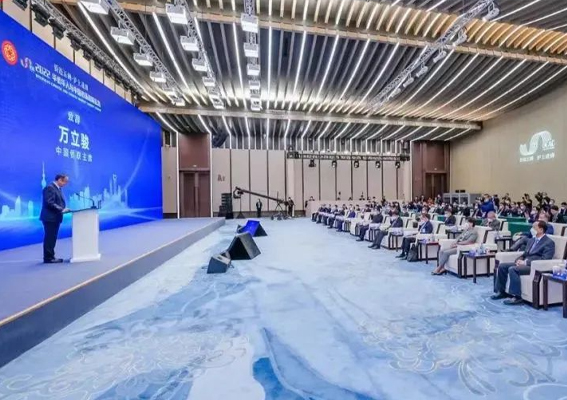EACIPA viewpoint
OpenAI again Wang fried investor Zhang Jiahao exclusive interpretation of AI how to reshape industry and finance
Create_time:2024-05-28 Views:512
The atmosphere of the New Year has not yet dispersed, and OpenAI has once again achieved dimension reduction in the field of video generation.
OpenAI recently released the first video generation model Sora, claiming to be able to generate up to 1 minute of high-definition video, and even understand and simulate the real world.
When the world is still obsessed with how to generate text from text, and text to generate pictures, OpenAI just pulled out a video generation model Sora. In simple terms, Sora is a diffusion model that can generate up to a minute long video based on text instructions or still images, and the video also contains sophisticated scenes, vivid character expressions, and complex camera movements - it does what the current video model can't do.
After Sora's release, OpenAI's valuation is skyrocketing. The market expects OpenAI to be valued at more than $80 billion. Shortly after ChatGPT was released early last year, OpenAI was valued at about $29 billion.
With the rapid development of science and technology, artificial intelligence (AI) has become an important force to promote social progress. In this wave of change, OpenAI, with its cutting-edge technology and strategic layout, is profoundly affecting the global industrial and financial structure. Well-known investor Zhang Jiahao recently shared his views on how OpenAI is reshaping the industrial and financial structure, and deeply explored the logic and cases behind it.
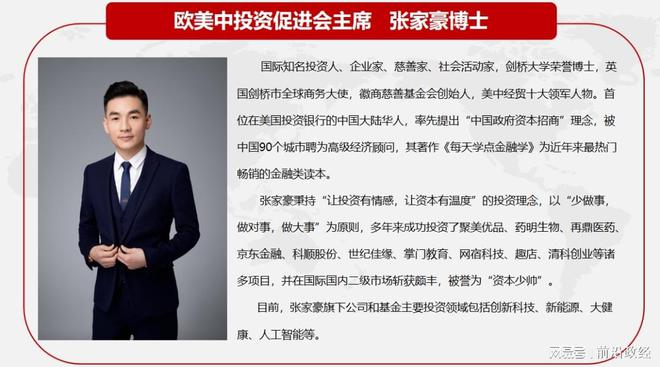
Zhang Jiahao first emphasized OpenAI's leading position in the field of artificial intelligence. He said that combining the concept of "five-dimensional thinking - industrial thinking, financial thinking, political thinking, social thinking and human thinking" from the perspective of professional investors, analyzing the explosive development of OpenAI cannot be separated from three key points - technological innovation, industrial layout and social effect.
Zhang Jiahao pointed out that the reason why OpenAI can make such remarkable achievements in the field of AI is that its strong technical strength is indispensable. Over the years, OpenAI's research team has continued to solve AI technical problems, from deep learning to natural language processing, to today's large model technology, each innovation has set a new milestone for the development of AI technology.
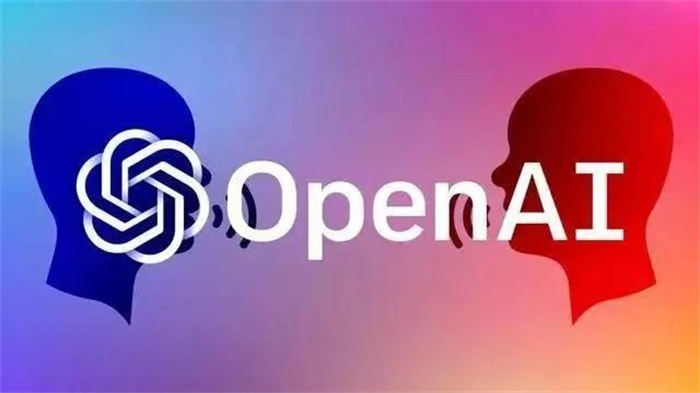
In addition to its technical strength, OpenAI's forward-looking strategic layout is also the key to its success. From its beginnings as a non-profit research organization to today's industry leader in partnerships with many of the world's leading companies, OpenAI has always stood at the forefront of AI development and has its finger on the pulse of the industry. This strategic layout not only enables OpenAI to keep up with technology trends, but also wins it in-depth cooperation opportunities with industry partners to jointly promote the application of AI technology.
A wide range of partnerships is also one of OpenAI's strengths. The cooperation with the world's top enterprises not only provides OpenAI with a rich application scenario and test environment, but also enables it to learn from the cooperation and constantly improve and optimize AI technology. OpenAI's innovative technology has driven a surge in AI infrastructure demand, and ChatGPT is trained and run on thousands of Nvidia Gpus, which has propelled Nvidia to become the biggest winner in this round of AI infrastructure layout. The company's stock price has risen nearly 50% this year, and its market value has surpassed Amazon and Google this year to become the third largest company in the US stock market.
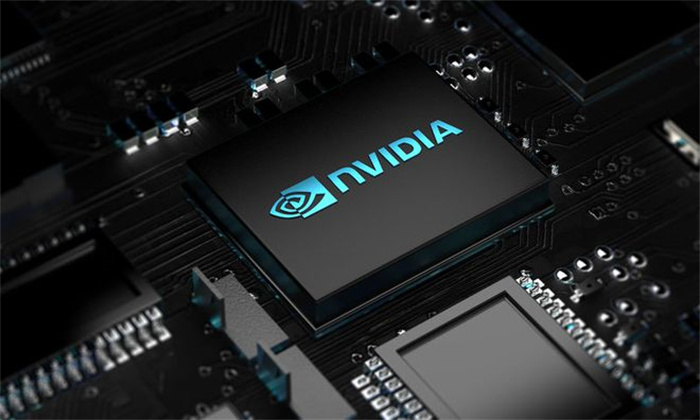
This cooperation model not only accelerates the commercialization process of AI technology, but also promotes the healthy development of the entire industry.
The social effect of technological development is the source of the vitality of sustainable development. Zhang Jiahao pointed out that if the human scientific and technological revolution 1.0 is the steam revolution based on the steam engine, 2.0 is the industrial revolution based on the internal combustion engine, and 3.0 is the information revolution based on the computer, then Industry 4.0 is definitely the rise of super artificial intelligence. Super AI is fundamentally improving people's social productivity, eliminating a part of low-end production capacity, and in the foreseeable future (5-10 years) all work efficiency below the average value of the work done by super general AI will generally be replaced by this strong artificial intelligence in the future. To a certain extent, this has played a role in the bottom of human social productivity, and this bottom of the red line is undoubtedly the lower limit of artificial intelligence computing power, the upper limit is the amount of training, the more training, the more accurate the data processing, the smaller the error. And if super artificial intelligence access the Internet, this combination will be the technological explosion of AI, after all, the last combination is the scene brought by 5G+AI, the global Internet of Things, super blockchain, big data platform, then 6G+AI that breaks through the bottleneck of computing power? The benefits of the development of super artificial intelligence are that the social productivity of human society is greatly improved, the computational results of data processing are more ideal, the error rate is reduced, and the efficiency of social resource allocation is greatly improved, and the efficiency of capital accumulation is more efficient.
Reshaping industrial and financial structures is an important part of the social effects of super AI.
In terms of industry, Zhangjiahao took AI projects such as Youbi as an example to deeply analyze how AI technology can help industrial upgrading. He believes that innovative applications not only promote the development of related industries, but also inject new impetus into the sustained growth of the global economy. He took the "China humanoid Robot First Stock" listed on the Hong Kong stock market in early 2024 as an example to explain how artificial intelligence can effectively improve industrial efficiency and service quality. Zhang Jiahao pointed out that as people's demand for intelligence and automation continues to increase, the demand for artificial intelligence industry has shown a rapid growth trend. As an important carrier of emerging technologies and a key equipment of modern industries, robots can lead industrial transformation and breed new industries, new models and new forms of business. As a tool to serve people's better life, robots help improve the quality of life and meet people's consumption upgrading needs.

One of the highlights of artificial intelligence is its powerful ability to automate processes. Using advanced machine learning technology, it is possible to automate various processes, greatly improving production efficiency and service quality. This capability not only accelerates the pace of change in the digital economy, but also provides new possibilities for the transformation and upgrading of traditional industries, and helps enterprises reduce costs and enhance competitiveness by optimizing production processes and improving production efficiency.
In Zhangjiahao's view, the reason why OpenAI's machine learning technology is so powerful is its ability to automate information by remembering and learning from historical experiences. This technology can not only help enterprises respond quickly to market changes, but also dig out valuable information in the ocean of big data to provide strong support for corporate decision-making. In addition, OpenAI's machine learning technology is able to mimic human behavior. Zhang Jiahao, for example, said that OpenAI has achieved remarkable results in areas such as intelligent driving. By mimicking the behavior of human drivers, OpenAI's machine learning technology is able to drive cars autonomously and make accurate judgments and decisions in complex traffic environments. The application of this technology will not only change the way we travel, but also bring revolution to logistics, transportation and other industries. In the financial field, Zhang Jiahao pointed out that AI technology is profoundly changing the competitive landscape and service model of the financial industry. Traditional financial institutions are actively embracing AI technology to make breakthroughs in improving service efficiency, optimizing risk management, and innovating financial products. At the same time, emerging financial technology companies are also using AI technology to provide consumers with more convenient and personalized financial services. These changes not only enhance the overall competitiveness of the financial industry, but also bring a better financial experience to consumers. Zhang Jiahao further pointed out that the key reason why OpenAI can lead the wave of industrial and financial innovation is its strong innovation ability, open cooperation ecosystem, and social responsibility to continue to promote the popularization and application of technology. He stressed that these characteristics make OpenAI have a unique competitive advantage in the field of artificial intelligence, and also provide a strong support for the transformation and upgrading of the global industrial and financial structure. Zhang emphasized that OpenAI's machine learning technology has brought unprecedented convenience and efficiency to financial investment. The traditional investment decision-making process often relies on manual analysis of large amounts of market data, which is not only time-consuming, but also prone to human interference. OpenAI's machine learning technology provides investors with faster and more accurate decision support by automating the processing and analysis of this data. This technical support not only reduces the error rate of manual analysis, but also greatly improves the efficiency and accuracy of investment decisions.
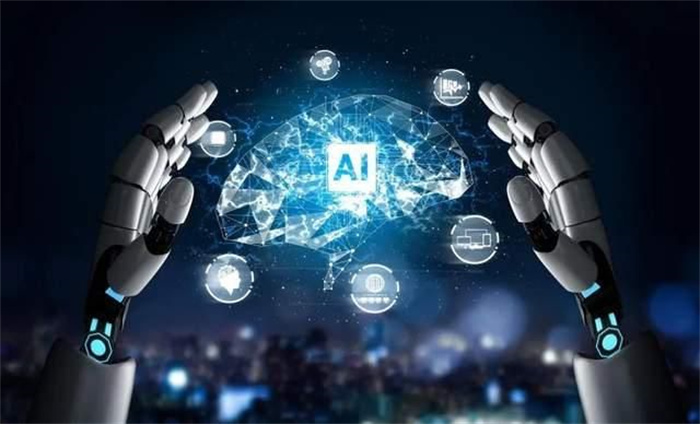
In the field of financial investment, OpenAI technology has a wide range of application scenarios. Zhang Jiahao mentioned that using deep learning and natural language processing technology, OpenAI can analyze market dynamics in real time, interpret financial news, and provide investors with valuable investment leads. These technologies can quickly process a large amount of information and extract useful investment information from it to help investors grasp market opportunities.
In addition, OpenAI's technology can also help investors predict stock price trends, assess investment risks, and develop more scientific and reasonable investment strategies. Through deep learning and pattern recognition, OpenAI's technology can detect patterns and trends in the market and provide investors with accurate investment advice. This technical support not only improves the return on investment for investors, but also reduces the investment risk.
In addition to providing decision support, OpenAI's technology can also help investors make their investments more efficient. For example, in portfolio management, OpenAI's technology can automate portfolio optimization, reduce investment risk, and improve investment returns. These technologies can comprehensively consider factors such as market risk and investor preferences, and build a more scientific and reasonable investment portfolio for investors.
However, Zhang also pointed out the challenges OpenAI faces in leading the change in financial investment. With the wide application of AI technology, the problem of data security in the field of financial investment has become increasingly prominent. Zhang's in-depth analysis of the application and potential of OpenAI in financial investment reveals how AI is changing the future of financial investment. He highlighted the significant advantages of OpenAI's machine learning technology in processing large amounts of market data, providing decision support, and improving investment efficiency. These advantages not only reduce errors and biases in human analysis, but also greatly improve the speed and accuracy of investment decisions.
In particular, OpenAI's deep learning and natural language processing technologies make it possible to analyze market dynamics and interpret financial news in real time, providing investors with valuable investment leads. In addition, the ability to predict stock price trends and assess investment risks enables investors to develop more scientific and rational investment strategies.
In terms of portfolio management, OpenAI's technology has also played a huge role. Automated portfolio optimization not only reduces investment risk, but also increases investment returns. At the same time, real-time monitoring of market dynamics and timely adjustment of investment portfolios enable investors to flexibly respond to rapid changes in the market.
However, Zhang also reminded us that with the widespread application of AI technology in the field of financial investment, data security issues are becoming increasingly serious. Investors need to be highly vigilant about the risks of data breaches, abuse and misuse, and ensure the security of personal information and investment data.
Overall, OpenAI's machine learning technology brings great convenience and efficiency improvements to the financial investment field, but it also brings new challenges. While enjoying the benefits of technology, we need to focus on challenges such as data security to ensure the sustainable development of technology. Zhang's analysis provides us with a comprehensive and in-depth perspective on how OpenAI is leading the financial investment revolution, which is important for us to understand and respond to the financial investment market in the future. In the concluding section, Zhang Jiahao said that with the continuous development and popularization of AI technology, OpenAI will continue to play its leading role in driving profound changes in the global industrial and financial structure. At the same time, he also called on more enterprises and individuals to pay attention to the development of AI technology, jointly grasp this historic opportunity, and contribute to the prosperity and progress of society. Through Zhang Jiahao's in-depth analysis, it is not difficult to see the important position of OpenAI in leading the wave of industrial and financial innovation. Its strong technical strength, forward-looking strategic layout, and extensive partnerships give OpenAI a unique competitive advantage in the field of artificial intelligence. In the future, with the continuous development and popularization of AI technology, we have reason to believe that OpenAI will continue to play its leading role in promoting profound changes in the global industrial and financial structure, and inject new vitality into the prosperity and progress of society.


